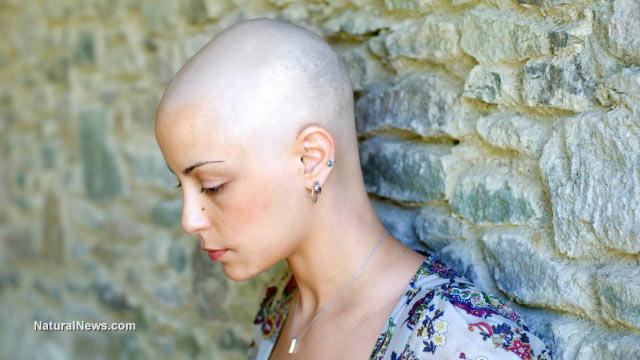As disease rates explode worldwide, getting diagnosed with cancer is now more common than having a baby
07/19/2017 / By Rhonda Johansson

A new analysis made by MacMillan Cancer Support showed that more people are being diagnosed with cancer than getting married or having a first baby. The group stated that in 2015, 361,216 cases of cancer were diagnosed in England compared to only 271,050 babies born to first-time mothers and 289,841 marriages reported in the same year. Getting cancer is almost as common as graduating from university (370,910), according to the health group. Researchers from MacMillan warned that these are troubling statistics, considering that in only the last decade, 1.2 million people developed the disease before the age of 65.
Chief Executive of the group, Lynda Thomas, told Telegraph.co.uk, “as more and more people are being diagnosed with cancer, it’s important that we are all better informed about what to expect if we do one day receive this shocking news. Cancer is almost always life-changing, but it isn’t always life-ending. Life with cancer is still life — you’re still a dad, a sister, a grandparent, a friend.”
The group also found that cancer is the most feared disease for many people. Based on a representative group of participants, one in 10 people in the U.K. are afraid of developing cancer. This is leaps and bounds away from their fear of being diagnosed with Alzheimer’s, suffering a stroke, developing depression, contracting a heart disease or even multiple sclerosis.
Perhaps this fear is not entirely unfounded, as current projections place half of the world’s population developing a form of cancer at one point in their lives.
The power of the elements: Discover Colloidal Silver Mouthwash with quality, natural ingredients like Sangre de Drago sap, black walnut hulls, menthol crystals and more. Zero artificial sweeteners, colors or alcohol. Learn more at the Health Ranger Store and help support this news site.
A trend of sickness and disease in a “healthier” society
Cancer is a complex disease despite its prevalence. Medical professionals have for decades, attempted to understand the illness and develop better treatments and management programs. There is still no cure for cancer; although there are hopes that by truly understanding the mechanics of how cancer develops and spreads, our world will be able to see the end of this disease. These forecasts though bring to light a paradox in our medical industry. How is it, despite the well-researched and highly-acclaimed advances in medicine, more people are getting sick?
Cancer, when broken down to its essential processes, is a natural phenomenon. All cells grow, develop, and die. However, a simple mutation forces certain cells to multiply more than necessary. This excessive growth develops into tumors which take over a specific region, disrupting other processes, and causing illness.
Human genes have not changed dramatically in the last few generations, but conditions and lifestyle habits have. This, experts believe, is the primary cause for the rapid growth of cancer cases in the world. Even accounting for improved screening procedures, medical professionals are seeing more people, and younger ones at that, developing cancer. Current records show that nearly 70 percent of the American population is overweight or obese. Carrying excessive weight, particularly around the abdomen area, significantly increases your risk of developing cancer. However, obesity is dangerous not only in its physical manifestations but in its associated lifestyle habits as well. Those who are overweight generally do not exercise, drink more alcohol, consume a diet that is rich in red meat and processed sugar, and participate in riskier behavior such as smoking and sunbathing or tanning in sunbeds.
Then there is the medical industry itself. Early treatment plans are rigorously practiced, often with people being given chemotherapy despite numerous studies which prove the inefficacy of the treatment. Well-meaning but misinformed doctors can even give potentially hazardous medical advice regarding diet. Not long ago we were told to not consume any form of fat (even those found in fish and organic oils) because it was “bad” for you. While this advice is no longer given, similar assumptions regarding organic food and alternative treatments are still being seen.
Thomas’ assertion that life goes on with cancer is correct. Contracting the disease need not spell out the end of one’s joy. Nevertheless, it has become increasingly evident that people should become more aware of preventive habits and educate themselves on medical practices that could prove to be more harmful in the long-run.
Sources include:
Tagged Under: cancer, cancer cases, cancer industry, cancer patients, risk of cancer




















